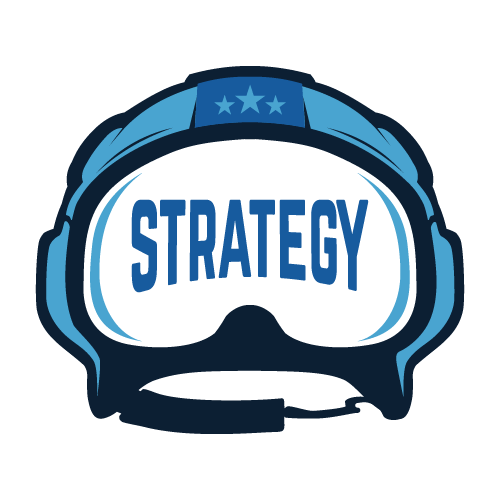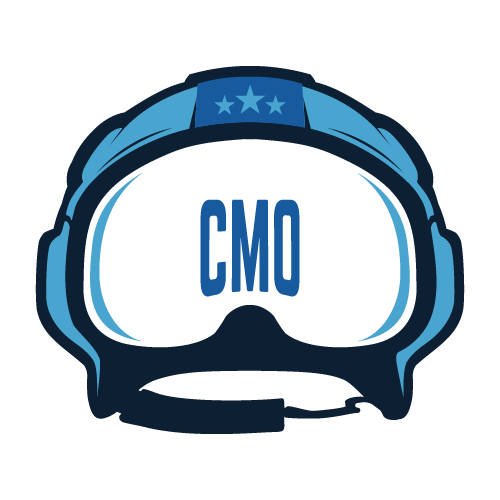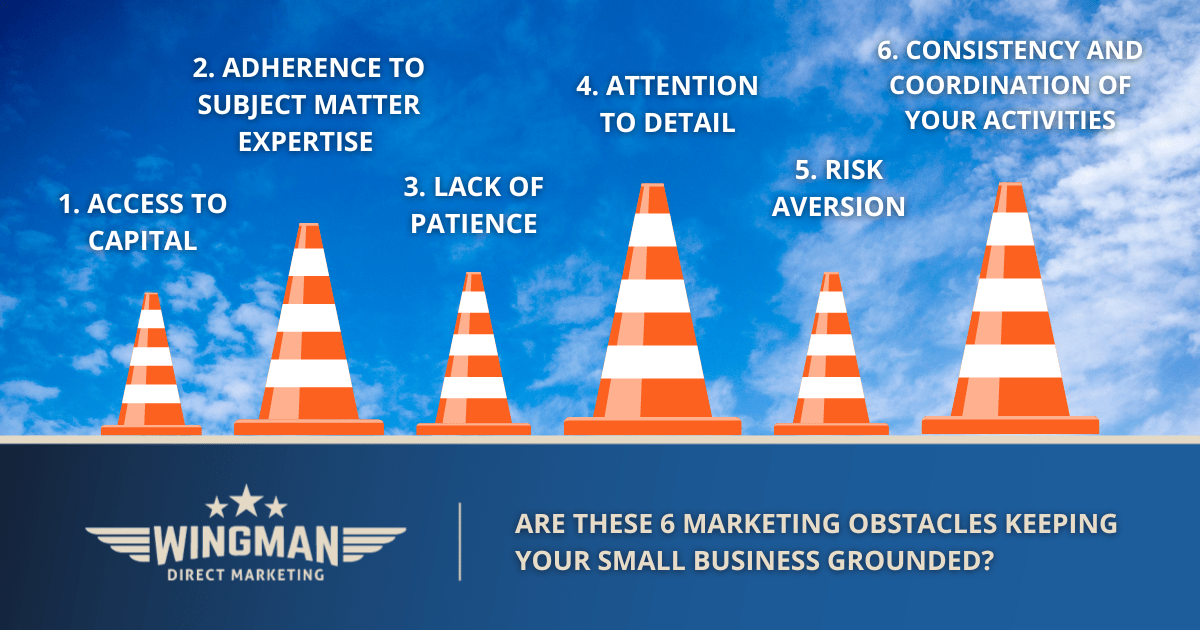The Wingman crew has been known to say, “marketing is not hard.” Any one task can be learned and can be part of a DIY strategy. Marketing isn’t easy either. That one task is never alone as it needs to be accompanied by dozens of its friends. However, there are only so many dollars in your wallet and hours in the day. These are the biggest marketing obstacles in every small business’ success.
Maybe we should start saying, “marketing is not hard, but marketing well is extremely hard.” The coordination of each of the dozens of marketing tasks is another of the major marketing obstacles keeping your small business grounded or preventing it from soaring.
6 Marketing Obstacles to Avoid
Want your business to soar above your competition? Start by avoiding the following marketing obstacles.
1. Access to Capital
This one is obvious. Of course, access to marketing capital is going to be one of your biggest – if not the biggest – marketing obstacles hampering your ability to soar. With sufficient marketing dollars you can:
- Use advertising (online or otherwise) to boost the visibility of your products and services
- Hire an in-house professional or pay an outsourced resource to develop content and other marketing assets
- Buy the right tools for delivery of the right message to the right target at the right time in the right medium
- Take the time to build brand resonance as opposed to simply targeting leads with promotional messaging 100% of the time
The problem for most small businesses is that, by definition, many of them don’t have that kind of capital to start with. Realistically, many small businesses won’t be able to solve for this issue in any immediate-term operational ability. Instant access to capital is more of a business obstacle solved via business owner investment at first. It can’t be solved quickly through marketing, but the act of marketing can soon enough solve for this.
With that said, we are simply business capital as one of the key marketing obstacles but are not going to address how to solve it (at this time). [Check out our blog on 8.5 marketing budget techniques]
- Access to Marketing Capital
- Risk Aversion
- Patience
- Attention to Detail
- Adherence to Subject Matter Experts
- Consistency and Coordination of your Activities
2. What Risk Aversion are you Comfortable With?
The saying, “you can’t lose what you don’t risk,” does not apply to marketing. Marketing (unfortunately) is a risk. There is no secret sauce that works every time. Any snake oil salesperson that promises that their marketing system is a guaranteed, slam dunk, works-every-time, sure thing should terrify you. Run. Run fast.
But, if you can’t be found, you’re already dead in the water. You must do something. You must try different things. Sadly, we often watch as companies do nothing. Or, when hard times come (as they regularly do) they turn off the marketing facet, impacting their business not just today but in the weeks and months to come.
Sometimes small businesses can’t decide what to do. They have a limited marketing budget, and they want to ensure it stretches as far as it can and returns the absolute best results possible. That indecision – analysis paralysis – ends up hurting them more than they know. The BDC suggests small businesses spend anywhere from 2-5% of their revenues on marketing (not including staffing) with an estimated 8% median average spend by this group in 2018. If your business is a startup, Wingman recommends closer to the 10-12% range. Your small business might have the best product offering but if no one knows about it, you won’t sell any of it.
Many small businesses have a laser-focused mindset on growth and growth alone. This is a perfectly acceptable focus. However, where many get tripped up is that they want that growth with minimal cost. What happens is that this approach leads to inertia because there are few avenues for growth that don’t involve cost.
Wingman recommends for the risk-averse to think of marketing as a lead development learning activity. To distribute a part of their overall budget to marketing and looking at it as a learning experience in bite-sized manageable tactics and grow slowly over time. Maybe in months 1-3, boost a social post for a few hundred dollars. Maybe the next quarter, develop email content for an email funnel. And more each new quarter. And test, test, test. You must test to determine what works and what does not. Do more of the things that work and less – or stop altogether – the things that do not.
3. Lack of patience
Every business wants results … yesterday. But marketing done well is the long play. Many tactics you start today will have longstanding results but take some time to perfect. Take search engine optimization (SEO) for example, it can sometimes take 4-6 months for you to start ranking. Too often, lack of patience kicks in. Your business needs money today and as such you look for fast-performing solutions potentially at the cost of longer-term gains.
Wingman recommends thinking of marketing both as a lead generation tool but also as a brand builder. In time, brand resonance will pay off. This is especially true if you have a longer sales cycle. Focusing on building the brand and gaining awareness is key because that’s what drives anyone to make a purchase or do business with you. You need to move prospects through the customer sales journey from awareness to trust to purchase.
4. Attention to Detail
One of the most overlooked marketing obstacles is attention to detail. The success of any campaign you undertake can hinge on the smallest of details. A typo in the phone number or web link means no one can respond to your promotion. Typos and grammar errors in general could show your business doesn’t take the time to be perfect in your marketing so how can a recipient trust you will serve them with any level of perfection.
Your headline needs to entice, your images need to be relevant, your message needs to have consistent narrative, user experience on your website needs to be directional, and so much more.
Attention to detail matters. It’s what makes the difference between good marketing and great marketing. If you’re not a detail-oriented person or understand the nuances of marketing principles, you can always hire someone who is. Bring aboard an employee, hire a marketing agency, use a VA service. Use anyone who can help you audit what you’re doing and make those incremental improvements in what you do.
They say, “the devil is in the details,” so make sure you have someone who can help you ensure those details are well taken care of.
5. Adherence to Subject Matter Expertise – Trust the Experts
Advice can sometimes feel like a buffet. There’s so much of that it turns into a pick and choose proposition. However, when it comes to marketing, this can be one of the most confusing marketing obstacles out there. Just because your nephew has a social media account, it does not make him a social media expert. Just because a marketing agency offers social media as a service, does not make them social media experts. The same goes for all marketing tactics. You want to learn from the best and trust the experts.
Listen to those experts you hire when it comes to the advice or strategies they provide. It’s not just in marketing, it’s almost every industry where there are consultants, etc. Again, not all advice is good. But if you diligently hire/source an “expert” hopefully they have some experience in that field that you don’t. You are an expert in your business. Trust those that experts in their field.
You can go cheap when it comes to hiring ability. Opting to go with the lowest price or solutions like Fiverr for help or outsourcing aid that originates overseas. This might not be a bad thing but typically, you get what you pay for. The bottom line is you should invest in solid ability, and you should listen to it. You don’t always have to go with what they say but listening to them will help you learn something new. Maybe the advice will help you tomorrow as opposed to today.
6. Consistency and Coordination of your Activities
As mentioned above, there’s so much you can possibly do in marketing. It is easy to get overwhelmed (even as a Wingman!). What we often see before onboarding with clients are them becoming almost tunnel visioned. They do social in one silo, email marketing in another, advertising in a third, etc. Because it takes time to think about how one is related to the other. Better to just get it done! The problem, of course, is that your marketing becomes disjointed, and your overall narrative and brand gets lost.
Take a step back. Develop an overall marketing plan. Start by considering your buyer journey/marketing funnel and how each marketing channel you use feeds into that. By doing so, you will start to understand how your tactics can and should work together.
Book a Wingman Today
Are you getting in your own way? Accidentally stymying your own ability to soar? If you someone – a team – to watch your six, don’t hesitate to Book a Wingman for a free consultation. At the very least we can probably steer you in the right direction and get you on the path toward better marketing.










